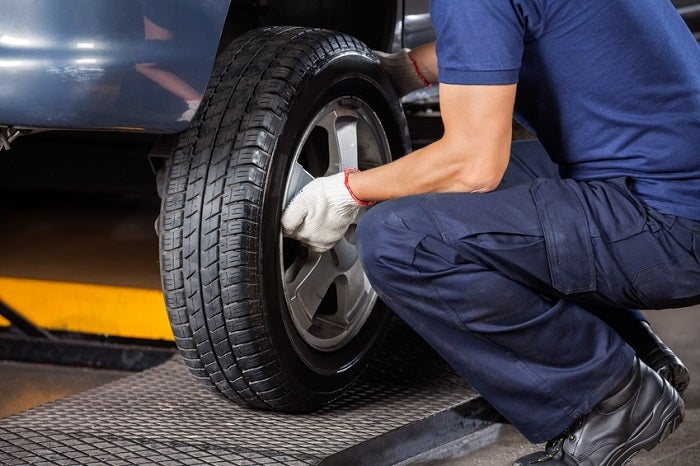Keep Rolling Properly: GMC Tires Service by Morris Tires
Keep Rolling Properly: GMC Tires Service by Morris Tires
Blog Article
Tire Solution: The Impact of Weather
When it involves making certain optimum efficiency and security when traveling, understanding the influence of climate condition on tire service is essential. From scorching warmth to icy roadways, each weather condition element can significantly affect tire performance and general driving experience. By diving right into the results of varying weather on tires, motorists can gain valuable understandings that might improve their vehicle's performance and long life. In this conversation, we will discover the complex relationship in between climate condition and tire solution, shedding light on the importance of weather-specific tire upkeep practices and factors to consider.
Warm and Tire Performance
When revealed to heats, tires experience modifications in performance that can significantly influence car safety and security and handling. The heat created from prolonged driving or warm weather conditions creates the tire rubber to soften, causing decreased step life and boosted wear. As the rubber comes to be softer, the tire's hold on the roadway reduces, affecting stopping ranges and general grip. In extreme cases, too much heat can even trigger tire blowouts, posing a severe security danger to the lorry and its occupants.

Cold Climate Results
Cold climate conditions can have a significant impact on tire efficiency and safety and security. In cold climate, tires may also shed air pressure extra quickly, which can impact dealing with and gas effectiveness.
To alleviate the impacts of chilly weather on tires, it is essential to routinely examine tire stress and inflate them to the manufacturer's recommended levels. Utilizing winter months or all-season tires developed for winter conditions can likewise boost traction and hold on icy or snowy roadways. Proper tire upkeep, consisting of normal evaluations for wear and damages, comes to be much more crucial throughout colder months to make sure optimal efficiency and safety.
Rainy Conditions Influence
Throughout rainy problems, tire efficiency and safety can be dramatically influenced by the wet roadway surfaces and reduced exposure. The tread pattern of tires plays an important duty in preserving grip on damp roads. Tires with damaged footsteps are a lot more susceptible to hydroplaning, where a layer of water develops up between the tire and the road surface, leading to loss of grip. To fight this, chauffeurs ought to frequently examine their tires for appropriate step depth and take into consideration buying tires especially developed for damp problems.
Furthermore, rainy weather condition can likewise decrease exposure, making it testing for chauffeurs to see the roadway ahead plainly (GMC Tire Service). In such problems, it is necessary to readjust driving rates as necessary and preserve a safe adhering to distance to allow for abrupt stops. Effectively inflated tires can also assist in preserving control on wet roadways by providing far better handling and hold
Snow and Tire Safety
Snow-covered roadways position unique obstacles for chauffeurs, stressing the value of proper tire option and maintenance. When driving in snowy problems, having the best tires can make a substantial difference in safety and security and performance. Winter months tires are developed with unique rubber substances and tread patterns to offer better traction on snow and ice contrasted to all-season tires. The deeper footsteps and sipes of winter months tires assist grip the roadway much better, lowering the threat of moving and slipping.

Additionally, drivers must consider setting up tire chains in severe snowy conditions. Tire chains give additional traction by grasping the snow and ice, improving stability and control. However, it is essential to adhere to supplier instructions when mounting and utilizing tire chains to stop damage to the tires and vehicle. By selecting the best tires, preserving proper inflation, and thinking about extra traction aids like tire chains, chauffeurs can enhance their safety when navigating snow-covered roads.
Weather-Related Tire Upkeep
Weather-related tire upkeep encompasses a range of practices intended at ensuring optimal tire function and longevity in different climate situations. One crucial aspect of weather-related tire upkeep is tire stress law. Inspecting tire walk routinely and changing tires when walk wear gets to a particular deepness is essential for maintaining traction and stability in adverse climate.
Final Thought
In conclusion, climate conditions have a significant influence on tire performance and security. From warmth impacting tire pressure and put on to cold weather condition minimizing traction, it is necessary to consider the weather when keeping and utilizing tires.
In this discussion, we will certainly check out the detailed connection in between climate problems and tire service, shedding light on the value of weather-specific tire upkeep practices and considerations.

Report this page